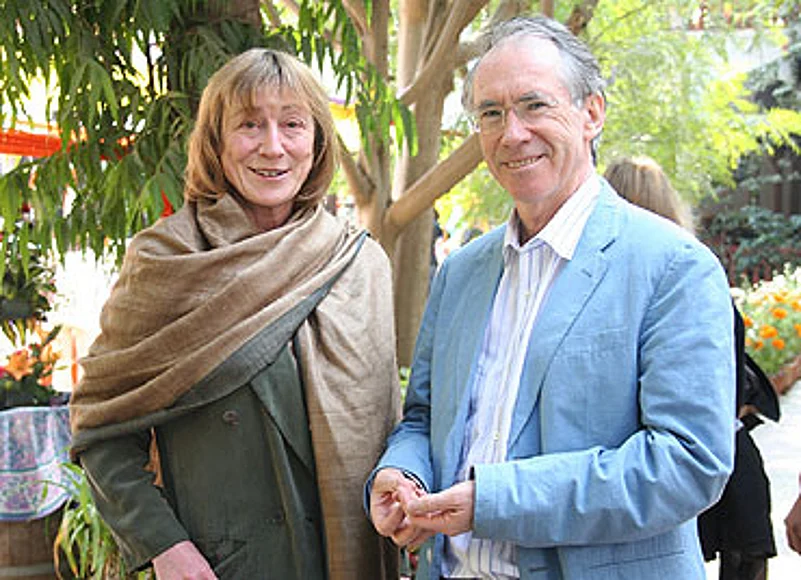
Again, Kunal Basu's latest collection of short stories, The Japanese Wife, sold out within an hour of his session with Aparna Sen, a feat that left even his publisher a bit taken aback. On the other hand, Hindi writer Uday Prakash, who is also a filmmaker, decided to stick to his literary half and paid the price: a lacklustre session.
And it wasn't the language thing, the eternal—and tedious—divisions between bhasha writers and English language ones, as many made it out to be. Among the least attended sessions, for instance, was on the poetry of Rajasthan. The fiction of Rajasthan, despite its linguistic correctness, came a close second. Whereas the session with Tamil poet and novelist Salma became something of a star event, landing her with that ultimate prize for a little-known writer: an invitation to the UK's Hay Festival and an enquiry from literary agent David Godwin.
The genuine reader—a mythical creature the Jaipur litfest has been in quest of since its inception three years ago—was conspicuously missing. But somewhere between the second and third day, the organisers stopped caring. If nothing else, the Jaipur litfest was rapidly turning into the mother of all page three parties, with celebrities—literary and otherwise—popping up at the ceaseless round of sessions, film screenings, launch parties, balls and concerts. And if the writers were less than enthused about the literary sessions, there were always the chairs in the sun and a glass of wine to take your mind off it. As Donna Tartt put it, "Books should be fun, and I'm glad I broke my boycott of litfests and came here."
So, did it work? The answer is like the proverbial seven blind men with an elephant: it depends on what you're looking at. It was a dream come true for those of us who can't afford to go to a ticketed event like the Hay Festival—a chance to hear at least half-a-dozen world-class writers speaking of their craft and their books, and better still, to continue the conversation over wine and dinner. An intellectual feast for hearing some of the best minds debate on 'Greed for globalisation is killing India's soul'. An undreamt-of exposure for debut novelists like Salma. A chance to meet literary agents and publishers from across the world for aspiring writers. A venue to discuss possible book deals between publishers. A sounding board for feeling the readers' pulse in India. A painless—and efficient—way to promote a new book for authors like Manil Suri. A bonding between writers from the East and West, as the UK's Miranda Seymour and Pakistan's Moni Mohsin discovered over lunch. And—for those who attended both halves of the Literature Week—a chance to acquaint themselves with the rich diversity of India's vibrant multilingual literature.
But the best news came at the very end. The festival had found a funder willing to underwrite it for the next three years, perhaps longer. It was no longer a question of can it survive temperamental litstars and the wrangling between directors, but who'll come next year. The sweetest words we heard in Jaipur were surely from the writer who has taken on the mantle as one of the festival's three permanent directors, Dalrymple. "See you next year in Jaipur from Jan 19 to 25," he said in parting. "Amartya Sen is coming and so are Michael Ondaatje, Hari Kunzru, Zadie Smith, Mohsin Hamid, Madhur Jaffrey, and perhaps even Amitav Ghosh." Global India had won.



















